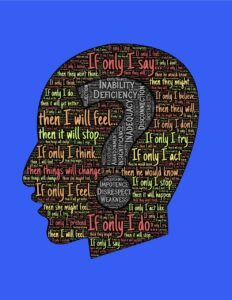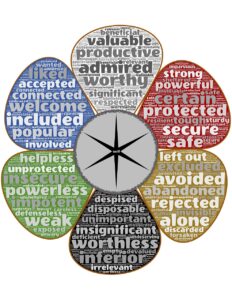TL;DR:
– Setting Expectations is crucial for well-being and self-improvement, impacting daily life significantly.
– Self-awareness and realistic goal setting are key in effectively setting personal expectations.
– Understanding the gap between expectations and reality helps manage disappointment and avoid negative impacts.
– Dealing with unmet expectations requires resilience, adaptability, and tips for handling disappointment.
– Setting the right expectations can enhance well-being, drive personal growth, and influence success and happiness perception.
Introduction
Setting expectations is at the heart of the quest for self-improvement and well-being. As a seasoned expert in this field, I have learned that shaping and managing our expectations can guide us towards significantly enhancing our overall life satisfaction. This journey can be challenging, yet truly rewarding. Get ready to explore five powerful techniques for effectually setting expectations, radically improving your self-growth process, and fostering ultimate well-being. Brace yourself for an enlightening adventure of self-discovery and personal transformation. Let’s carve out the path to a healthier, happier ‘you’.
Setting Expectations: The Key to Well-being and Self Improvement
One aspect of life that can significantly impact our well-being and improvement is how we set expectations. But what exactly is the role of setting expectations in fostering personal growth and building healthy relationships?
The Problem with Unrealistic Expectations
Among the primary challenges many people face is the burden of unrealistic expectations. These may originate from many sources, such as family pressures, societal norms, or even self-inflicted standards. This often leads to disappointment, anxiety, and a struggle to maintain healthy relationships. The key to overcoming this hurdle? Setting expectations that align with reality.
Solution: Setting Realistic Expectations
Setting expectations is vital to personal growth and healthy relationships. It helps us set achievable goals, improve communication, and eliminate unnecessary stress. Here’s how you can do it:
- Identify your wants and needs: Clear self-understanding lays the groundwork for setting expectations.
- Communicate: Open conversations minimizes misunderstandings and promotes mutual understanding.
- Be flexible: Understand that circumstances can change and adapt your expectations accordingly.
To further understand, the article “The Psychology of Expectations” from Psychology Today offers more in-depth insights on this topic. Setting realistic expectations is a practical tool in your journey towards self-improvement, as suggested by Forbes .
Incorporating the practice of setting expectations into your life enhances your overall personal growth journey, contributing to improved well-being and more fruitful relationships. Remember, it’s all about learning, adapting, and growing.
Setting Expectations for Better Relationships
In relationships, setting expectations touches on boundaries, communication, and understanding. It can be the difference between a fulfilling relationship and a toxic one. Proper expectation setting allows both parties to understand their roles and what is expected, reducing conflicts and misunderstandings.
No matter where you are in your self-improvement journey, remember – setting realistic expectations will pave the way for better experiences, personal growth, and healthier relationships. It’s all about being able to find the right balance suitable to your needs and circumstances.
Setting Expectations: The Key to Improved Well-being and Self-improvement in Relationships
Ever wondered why some relationships seem effortlessly harmonious, while others are a constant struggle? The answer often lies in setting expectations. Managing our hopes and intentions plays a significant role in our overall well-being and self-improvement. Why? Let’s dig deeper.
The Role of Expectations in Well-being and Self-improvement
Setting expectations isn’t about controlling outcomes, but preparing our reactions and responses. By clearly outlining what we expect from ourselves and others, we create a roadmap towards healthier interactions and personal growth.
Studies such as the one from APA PsycNet suggest that expecting positive experiences lead to increased happiness and improved mental health. (source)
Setting Expectations in Relationships
In relationships, setting expectations works as a preventive measure against misunderstandings and disappointments. The clearer the expectations, the greater the understanding between partners.
A Practical Approach: How to Set Expectations?
Here are some practical tips to guide you in setting expectations:
- Communicate openly: Share your feelings, needs, and standards with your partner.
- Listen actively: Understand your partner’s perspective and form a mutual agreement.
- Keep them realistic: Avoid setting expectations based on ideals. Rather, base them on the real capacities of both you and your partner.
Remember, setting expectations is a continuous process, not a one-time event!
The importance of setting expectations in relationships cannot be overstated. As renowned relationship counselor Gary Chapman put it: “Unspoken and misunderstood expectations are potent killers of relationships.” (source)
Aim for clarity and understanding, and watch as your relationships, along with your well-being and self-improvement, flourish.
Setting Expectations in Relationships
Do you often feel unfulfilled in your relationships? If so, it might be due to mismatched expectations. Setting expectations is a key aspect of creating healthy and satisfying relationships.
Understanding Expectations
Expectations are beliefs about what we think should happen, both in general life situations and specifically in our relationships. They are often based on our personal experiences, cultural backgrounds, and societal norms. For example, one might expect their partner to always put them first. However, this may be unrealistic and lead to disappointment.
Importance of Setting Expectations
By setting expectations, we express our needs and desires clearly. This openness encourages mutual understanding and diminishes arguments that stem from misconceptions. Studies show that couples who discuss their expectations have higher relationship satisfaction.
How to Set Expectations
Setting expectations doesn’t mean issuing strict rules for your partners to follow. It’s more about communication and understanding. Begin by determining what’s important to you in a relationship. From there, foster open conversations with your partner about these expectations. Lastly, be ready to compromise as relationships are about give and take.
For those looking to navigate these complexities, consider seeking guidance from a professional relationships advisor. Many resources, such as the advice column on Psychology Today can offer helpful insights on setting realistic expectations. Alternatively, the work of Dr. John Gottman, a well-respected psychologist specializing in relationship studies, provides valuable guidance on achieving mutual understanding in relationships on his website.
Remember, setting expectations is an ongoing process, requiring patience and understanding. So, take your time and aim for progress, not perfection.
Understanding the Importance of Setting Expectations
From professional relationships to personal ones, the act of setting-expectations plays an integral role in the success and well-being of all involved parties. But why is it so crucial?
The answer lies within human behavior itself. We operate based on certain expectations. For instance, we expect the sun to rise every day, which in turn shapes our daily routines. Similarly, our relationships are guided by what we expect from each other. When these expectations are not met, it can lead to dissatisfaction, resentment, and a breakdown of relationships.
Navigating Challenges Linked with Expectations
Setting expectations is not always easy. It often requires clear communication, understanding, and mutual respect. One of the main challenges is that people often have different expectations, which can lead to conflict. This is where a relationship advisor can step in to mediate the discussion and help parties align their expectations.
The Solution: Clear and Effective Communication
Effective communication is the key to setting expectations. This includes not only conveying what you expect from the other person but also understanding and respecting their expectations. It’s a two-way street that requires honesty, transparency, and empathy.
To enhance your communication skills:
- Practice active listening – pay full attention to the speaker and affirm their points.
- Provide constructive feedback – be open, honest, and kind.
- Be clear and concise – avoid using ambiguous terms that could lead to misunderstandings.
Remember, setting-expectations is an ongoing process. It needs regular reinforcement and adjustments as situations change.
Integrating these tips into your everyday communication can significantly improve your relationships, leading to increased harmony, understanding, and well-being. For more in-depth guidance, consider consulting with a relationship advisor.
To learn more about self-improvement techniques, check out this fantastic resource on personal development.
This informative article on mindfulness for beginners can also contribute to your journey of self-development and wellness.
Setting Expectations in Relationships
Have you ever asked yourself, why do relationships tend to go sour? The root cause is often mismatched expectations. Understanding the role of setting expectations in relationships is critical, as it helps to build a solid foundation.
The Importance of Setting Expectations
What makes expectations so vital? They can be seen as the guiding principles or rules in a relationship. For example, if both parties have an expectation of mutual respect, they are less likely to engage in disrespectful behavior. When expectations are clearly defined and communicated, it gives the relationship more direction and prevents misunderstandings.
Practical Steps to Setting Expectations
Here are some practical steps to setting expectations in a relationship:
- Openly communicate your needs and wants.
- Understand your partner’s needs and expectations.
- Establish mutual agreements on core areas like respect, communication, and commitment.
- Regularly check in to see if expectations are being met.
Remember, expectations should not be a set of demands, but rather agreements that aim to enhance the relationship.
How Setting Expectations Benefit Your Relationship
Setting expectations can significantly improve your relationship. It fosters transparency, promotes accountability and nurtures trust and respect. Moreover, it reduces the chance of misunderstandings and disappointments, as both parties know exactly what to expect from each other.
Optimizing your relationship by strategically setting expectations is a vital element in well-being and self-improvement. Check the Harvard Business Review’s article on the power of managing expectations here. For more hands-on advice, therapist Dr. Dana Gionta’s practical guide on setting boundaries and expectations is an excellent resource.
Now that we have discussed how setting expectations can improve your relationship, let’s conclude by discussing the role of self-improvement in enhancing well-being.
Conclusion:
In essence, effective well-being and self-improvement hinge on the power of setting expectations. By embracing techniques like visualizing goals, communicating clearly, practicing self-compassion, staying adaptable, and cultivating gratitude, individuals can navigate their personal growth journey with resilience and purpose. Setting expectations becomes the cornerstone for creating a fulfilling life path. Embrace the power of setting expectations to empower your journey towards well-being. Dive deeper into this transformative realm to unlock your full potential and lead a more fulfilling life.













